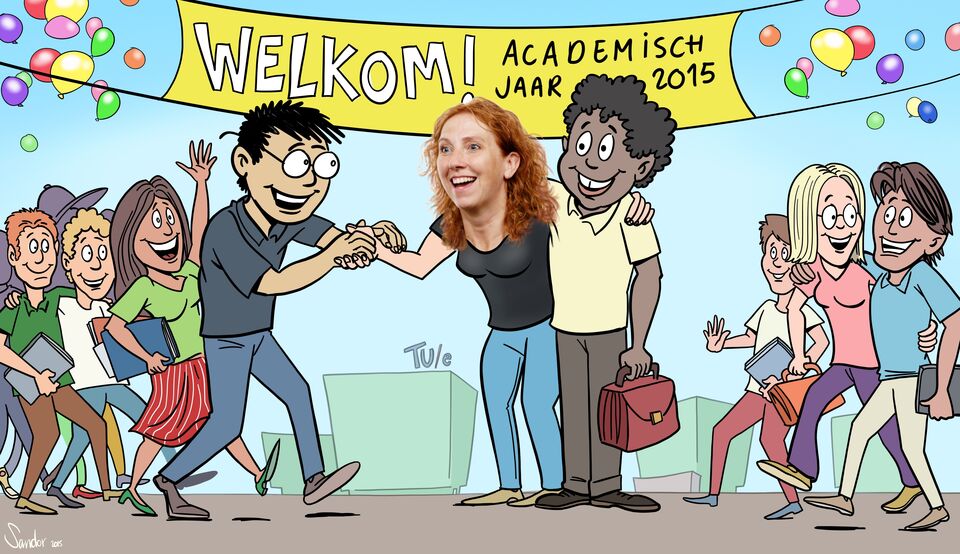Brain matters | Rainbows and pots of gold
There you are. Or, there you are again. The academic year has started with a bang and gold ribbons, and the science fiesta is about to start once more.
Theme of this year’s academic year opening was ‘TU/excellence’. I must admit it made me feel a little nauseous. As far as I’m concerned, excellence is an extremely relative performance goal, which is hard to define at that. It could prompt temporary blindness, ruthlessness, and egotism.
They were groundless fears, as it turned out. The message of all speakers, be they student, Rector, state secretary, or Spinoza laureate - was the same, really: look around you, expand your horizon, and cooperate. We can achieve more if we look beyond our respective disciplines. And since scientists have to slog away every day anyway, we might as well put our heads together and enjoy the process rather than focus on the pot of gold that´s waiting for us at the end.
More than eighty nationalities: now that’s educational
It was reassuring to see this matter being recognized and acknowledged, but we can do much better than that if you ask me. Education and research are wonderful, but there’s so much more: excellent sports facilities (where they happen to serve delicious sandwiches as well), all kinds of associations for people with shared quirks, and an amazing selection of films, lectures, etc. Not to mention the wealth of people that surrounds you: more than eighty nationalities. Now that’s educational.
A theme like ‘excellence’ might make you think of studying, cramming, and drudgery exclusively. I have a message for both students and faculty members: sure, but in moderation. Don’t forget to make new friends, get comfortable on campus, look around, participate, and invite someone over whose background is entirely different from yours. Like Dutch singer Ramses Shaffy once sang:
Zing [sing], vecht [fight], huil [cry], bid [pray], lach [laugh], werk [work], en bewonder [and admire]
- niet zonder ons! [- but not without us!]
Yvonne de Kort is Professor of Environmental Psychology at Human-Technology Interaction


Discussion